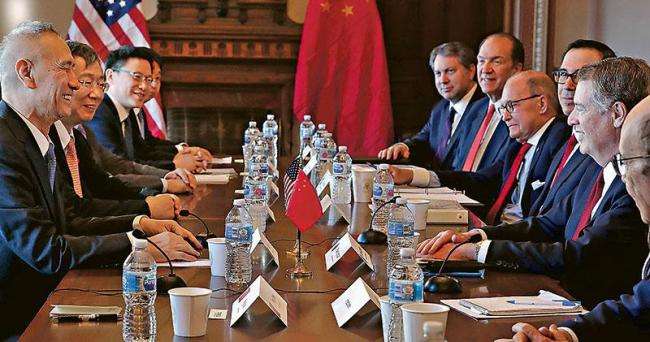The world this week
本周要聞
Business
商業
The Argentine government introduced emergency capital controls, restricting the amount of dollars that people and firms can buy. The measures are meant to stop money gushing out of the country amid a run on the peso, which has tumbled as investors fret that October’s presidential election will be won by a ticket that includes Cristina Fernández de Kirchner, a former president whose spendthrift policies ruined the economy.
阿根廷政府實施了緊急資本管制,限制了個人和公司的美元購買量。這些措施旨在阻止資金在比索貶值帶來的資金外流。由于投資者擔心10月份的總統大選將由包括前總統克里斯蒂娜·費爾南德斯·德基什內爾在內的候選人贏得,比索應聲大幅下挫。克里斯蒂娜·費爾南德斯·德基什內爾的揮霍政策摧毀了阿根廷經濟。
India’s economy grew by 5% in the second quarter compared with the same three months last year, the country’s slowest growth rate in six years and well below market forecasts. Separate figures showed that domestic car sales slumped in August (by 49% for Tata Motors compared with August 2018) and that manufacturing activity was cooling rapidly. More government stimulus is now on the cards.
印度經濟第二季度同比增長5%,為該國六年來最低增速,遠低于市場預期。另一項數據顯示,8月份印度國內汽車銷量大幅下滑(與2018年8月相比,塔塔汽車下滑49%),制造業活動正在迅速降溫。更多的政府刺激計劃如今正在醞釀之中。

The Indian government also announced plans to streamline the country’s state-controlled banks, which hold lots of bad debt, cramping their ability to lend, and proposed that ten state banks be merged into four new ones. Markets gave the idea a cool reception.
印度政府還宣布了精簡國有銀行的計劃,并提議將10家國有銀行合并為4家新銀行。國有銀行持有大量壞賬,政府也限制了它們的放貸能力。市場方面對這一舉措的反應冷淡。
Australia’s GDP grew by 1.4% in the second quarter, the slowest pace since the financial crisis. Exports are booming, but consumers in the Lucky Country are reining in their spending.
澳大利亞第二季度GDP增長1.4%,為金融危機以來的最低增速。出口業正在蓬勃發展,不過這個幸運的國家的消費者們正在控制支出。
Turkey’s annual inflation rate fell to 15% in August, the lowest it has been for 15 months. Inflation soared to 25% at the end of last year amid a currency crisis. Today’s more stable lira and decreasing price pressures have boosted expectations that the central bank will again slash interest rates when it meets on September 12th, though probably by not as much as the 4.25-percentage-point cut to rates in July.
土耳其8月份的年通脹率降至15%,為15個月來的最低水平。去年年底,由于貨幣危機,通貨膨脹率飆升至25%。如今更加穩定的里拉以及不斷下降的物價壓力提高了人們的預期,即央行將在9月12日開會時再次降息,盡管降息幅度可能不及7月份4.25%的幅度。
America and China agreed to resume high-level talks in early October to try to resolve their trade dispute. Negotiators last met in July and there is little hope that a breakthrough will come soon. There was evidence this week that the dispute is having an effect on manufacturing. Factory output in America surprisingly contracted in August for the first time in three years. In Britain manufacturing activity fell to a seven-year low. And in Germany a purchasing-managers’ index suggested that manufacturing had shrunk for an eighth consecutive month. Figures in China showed manufacturing contracting for the fourth month in a row.
中國和美國同意在10月初恢復高層會談,試圖解決兩國的貿易爭端。談判代表上次會面是在7月份,當時談判取得突破的希望渺茫。本周有證據表明,這場爭端正對制造業產生影響。令人驚訝的是,美國8月份的工廠產量出現了三年來的首次萎縮。英國制造業活動跌至7年來的最低點。德國采購經理人指數顯示,制造業已經連續第八個月萎縮。中方數據顯示,制造業連續第四個月出現收縮。
譯文為可可英語翻譯,未經授權請勿轉載!











